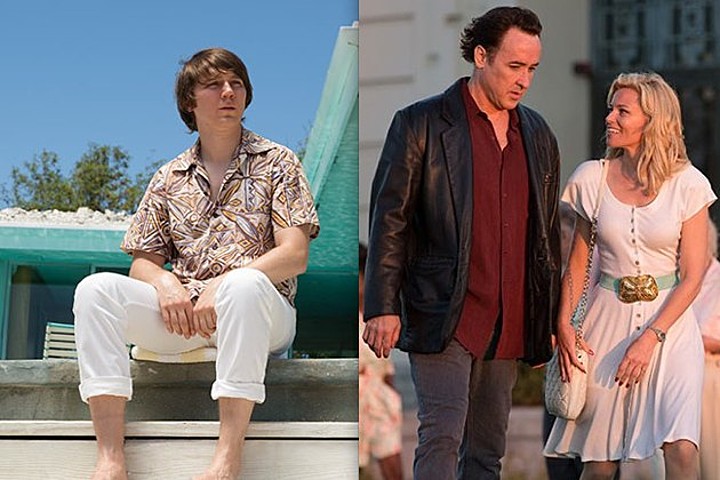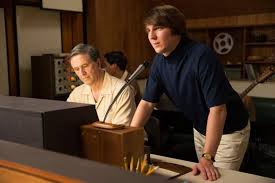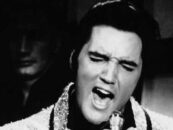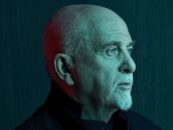Like many of my generation, I grew up with the music of Brian Wilson and The Beach Boys. And followed what he created as it matured and I did too. And came to know Wilson’s tumultuous and finally triumphant life story quite well through books and magazine articles, further enhanced by the brilliant music he created over the years in which he dug emotionally affecting songs from his soul – witness Pet Sounds for instance, a timelessly satisfying Desert Island Disc if there ever was one – that have hit the deepest places in my heart and that of millions of others.
Despite the fact that I knew how Love & Mercy would end, sweet tears of joy welled up in my eyes at the end of the film’s world premiere screening at the 2015 edition of South By Southwest Film Festival in March. Yes, the movie about Wilson (which arrived in theaters on June 5) is that deeply moving. And a brilliantly executed film that I expect to remain my choice for the 2015 Best Picture Oscar even this early in the game no matter what else follows – and not just because I am a lifelong fan of Wilson’s music. [Editor: The film ultimately earned no Academy Award nominations.]
It would take many hours to tell his story chronologically with all the fullness of Wilson’s ingenious creativity, struggles with his mental health and drugs, conflicts with his father who managed the band early on as well as his bandmates, recovery from his psychiatric afflictions to become healthy, happy and again artistically productive, and so much more. Yet director Bill Pohlad and the film’s screenwriters ingeniously use the tools of cinema to compress all that into a sumptuous two-hour feature film that hits all the essential beats of his life with a, yes, harmonious and symphonic mastery that plays over and over again in your imagination after seeing it like a treasured favorite hit song.
Love & Mercy starts with a montage of early Beach Boys music and iconic moving images that smartly summarizes their rise to stardom. Then cuts to the older Wilson, played by John Cusack, as he eccentrically shops for a new Cadillac, and despite his odd ways – and likely also due in part to that, along with his sweet nature – charms saleswoman Melinda Ledbetter (a radiant Elizabeth Banks). The story of their romance provides the ideal arc to hang Wilson’s story onto.
Cusack gets the adult Wilson down cold despite having no great resemblance to him by incorporating the facial tics, hesitant speech patterns, offbeat physiological carriage and other characteristics that often mark sufferers from schizoid disorders (trust me, I know them well by spending time over the last two decades with rock music’s other legendary and now recovered schizophrenic, Roky Erickson of the 13th Floor Elevators). In what may be the tour de force performance of his already distinguished career, Cusack becomes the older Brian Wilson.
Related: Cusack was among those paying tribute when Wilson died in June 2025
No mean feat, as he has formidable competition within the same movie from Paul Dano, who not just looks uncannily like the young Wilson but inhabits him to the point where his every moment onscreen feels like it could be documentary footage. Whether it’s romping in a pool with his fellow Beach Boys as they discuss band affairs or working in the studio with the Los Angeles session musicians known as The Wrecking Crew to record some of the most luscious and sophisticated pop-rock music ever on Pet Sounds, “Good Vibrations” and the aborted Smile, there is a profound “you are there” quality to every one of his scenes that I haven’t seen in the rock movie genre since A Hard Day’s Night.
And the same goes with every other scene in Love & Mercy, especially one that hauntingly resonates with me: Wilson takes Ledbetter to see the the family home of his youth in Hawthorne, a Los Angeles suburb… and it’s been paved over by a freeway (which in actual fact it was). In the same way that The Beach Boys were the musical metaphor for the Southern California of the 1960s, the moment serves as a signifier for Wilson’s release from the demons of his younger years while metaphorically updating its locale to current times.
It’s a somewhat unconventional and daring move to have two actors play one man, yet it never feels even a bit unlike both are the same person. Time shifts throughout the storytelling, but it all feels as seamless as a perfectly sequenced album (let me again invoke Pet Sounds). As a film, Love & Mercy never strikes a single discordant note, much like Brian Wilson’s finest recordings. Even if as with any biopic some liberties and alterations must always be taken with facts and aspects of the subject’s story to make it work as a film, this movie always looks, seems and feels like the reality of Wilson’s life (including the largely sun-splashed cinematography). Hence it reverberates with the truth, as a geniunely great movie should.
A musical genius like Wilson deserves a work of cinematic genius, and that’s what this film is. You will feel love, mercy and good vibrations and so much more from across the emotional spectrum as you watch it, which anyone who loves classic music and cinema must. [The film is available to stream or purchase in the U.S. here and in the U.K. here.]
The Smile album is a pivotal event in Love & Mercy. Watch this documentary on it by David Leaf, author of The Beach Boys and The California Myth. [The book is available in the U.S. here and in the U.K. here.]
Related: Our interview with author David Leaf
- I Get a Check From John Lennon - 12/08/2025
- B.B. King May Be Gone But the Thrill Remains - 09/16/2025
- Bobby Whitlock Interview on Derek & the Dominos - 08/11/2025








4 Comments so far
Jump into a conversationI was lucky enough to see it in advance at the TIFF Toronto international Film Festival well before release date. I need to revisit it.
loved the movie! kinda made me forget how much i trashed him in the past 40 years…
Trashed Brian Wilson…shame on you.
Won-won-wonderful movie with fabulous performances from Paul Dano as ’60s Brian, John Cusack as ’80s Brian, Elizabeth Banks as Melinda Ledbetter (perhaps the real hero in the Brian Wilson story), and especially Paul Giamatti as the infamous Dr. Landy.
The scene where Brian trips for the first time captures the joy and wonder and good good good vibrations of LSD that so many of us experience so many times, and is practically worth watching the entire movie for!
Is it the Best Rock Star Biopic Ever? Not sure, but I wouldn’t argue with anyone who said it was.